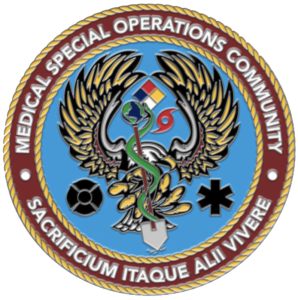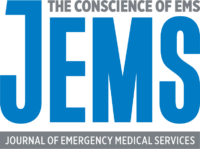After a deadly mass-casualty incident rocked their country, a group of South Korean paramedics came to America to learn.
In the aftermath of the tragic Itaewon Crush in October 2022, a dedicated team of South Korean paramedics embarked on a transformative journey to Orlando, Florida. Their expedition was more than a quest for knowledge, it represented a collective commitment to revolutionize and fortify their nation’s disaster response capabilities.
Their experiences in Orlando, spanning Technical Rescue Training (TRT), the National Urban Search & Rescue and Medical Special Operations Conference 2023, and ride along with the Orlando Fire Department, enriched their skill set and left an indelible mark on their mission to save lives during crises. Below are some of their takeaways, as told by the team coordinator (as translated from Korean).
Technical Rescue Training (TRT): A Deep Dive into Preparedness
Pre-TRT Preparation and Expectations:
The decision to train at the esteemed Florida State Fire College in Orlando was grounded in an evaluation of several international programs. The anticipation was high, driven by a desire to acquire advanced skills, foster a resilient mindset, and gain insights into international best practices in disaster response.
Intensive TRT Experience
Under the guidance of Dr. Beau Butherus, an emergency disaster medicine physician and medical team manager for FEMA Missouri Task Force 1, our TRT journey commenced with impassioned lectures, setting the stage for an intensive training program. Skill stations designed to replicate real disaster scenarios delved into the nuances of tracheostomy and hemorrhage control techniques. The emphasis on the ABCs (Airway, Breathing, Circulation) was foundational for responding to severely bleeding and crush syndrome patients in urban search and rescue situations.
The realistic simulations provided a hands-on experience and fostered a mindset necessary for rescuers in physically and mentally challenging situations. Instructors from various departments and states created a supportive atmosphere, providing valuable insights and fostering problem-solving skills.


Real-Life Scenario Response
The pinnacle of our TRT experience was a simulation of a building collapse, where the once-familiar training ground took on an unfamiliar feel in the darkness. The sounds of explosions and cries for help intensified the sense of danger, requiring us to apply everything we had learned. Role-playing patients demonstrated commitment, allowing us to treat them realistically, and instructors ensured the safety of all participants, contributing to the successful completion of the training.
Our confidence was bolstered as we realized our ability to handle challenging situations, even in scenarios with restricted body movements or blocked vision. Gratitude extended to Dr. Butherus, members of the medical special operations community, and the Disaster Medical Solutions (DMS) instructors who led the TRT course with humor, light-heartedness and consideration.
Urban Search & Rescue (US&R) and Medical Special Operations Conference (MSOC): A Nexus of Insights
Presentation on Itaewon Crush
At the US&R and MSOC 2023, we presented our insights on the Itaewon Crush, delving into the challenges faced, lessons learned, and areas for improvement in our nation’s disaster response. The presentation acted as a catalyst, sparking insightful discussions, and bringing forth diverse perspectives and experiences from global experts. It was a moment of sharing, learning and mutual understanding.


Engaging at MSOC
Beyond our presentation, we actively engaged in workshops, discussions, and networking sessions. Conversations ranged from innovative disaster response approaches to the vital role of mental health support for responders. An unexpected encounter with therapy dog programs left a lasting impression, sparking discussions on introducing similar support systems in Korea.
Expanding Insights at the MSOC
Specialized Workshops
Our journey extended to specialized workshops, where we delved into advanced topics such as telemedicine in disaster response, drone utilization, and innovative approaches to mass casualty incidents. The workshops expanded our horizons, providing a glimpse into cutting-edge technologies and strategies employed in disaster medicine.
Collaborative Research and Knowledge Exchange
Collaborative Research Initiatives
Our time in Orlando also facilitated collaborative research initiatives with local experts. This exchange of knowledge and experiences contributed to a deeper understanding of regional variations in disaster response strategies. Joint research endeavors laid the foundation for ongoing partnerships, fostering a global network committed to advancing disaster medicine.
Orlando Fire Department Ride-Along: Bridging Gaps in EMS Systems
Contrasting EMS Systems
Immersing ourselves within the Orlando Fire Department was a revelation. The integration of firefighting and emergency medical services presented a stark contrast to the distinct roles in the Korean EMS. Conversations with Orlando responders highlighted the efficiency and versatility of their system, allowing immediate medical response regardless of the assigned vehicle.
Impactful Experiences
Ride-along opportunities with various units provided unique perspectives. From working with Engine units to joining Rescue Ambulance teams, each experience offered insights into the adaptability of responders in dynamic situations. Witnessing firsthand the efficiency and seamless coordination reinforced the importance of an integrated approach.


Exploring Community Resilience Initiatives
Community Outreach Programs
Beyond the structured training sessions, we actively participated in community outreach programs initiated by local organizations. These experiences allowed us to interact with the community, understand their needs, and contribute to building resilience at the grassroots level. Collaborating with local stakeholders provided valuable insights into community-based disaster preparedness initiatives.
Conclusion and Vision for the Future
As we reflect on our multifaceted journey in Orlando, it becomes clear that this was not merely a destination but a crucible for change. The experiences gained from TRT, MSOC, ride-alongs, workshops, community outreach, and collaborative research collectively form the catalyst for a resilient and adaptive disaster response system in Korea.
Our vision for the future is not confined to the training grounds or conference halls; it is a dynamic blueprint for change. The lessons learned, insights gained, and collaborative partnerships formed with the Medical Special Operations Community Organization in Orlando are seeds planted for the growth of a robust and comprehensive disaster response framework in South Korea.
In returning home, we carry not just knowledge but a collective determination to implement positive changes. Our odyssey in Orlando was not the culmination but the beginning—a beginning marked by an unwavering commitment to saving lives during crises and ensuring the resilience of our communities in the face of adversity.
Contributors
EUNJI CHA
Senior firefighter/Paramedic, A.S.
Chuncheongnam-do Fire Department,
South Korea National Fire Agency
YOUNGJU CHOI
Sergeant firefighter/Paramedic, M.S.
Jeollanam-do Fire Department,
South Korea National Fire Agency
KYUYEOP YI
Sergeant firefighter/Paramedic, B.S.
Gyeonggi-do Fire Department,
South Korea National Fire Agency


